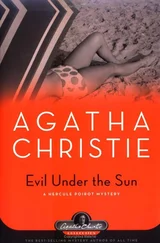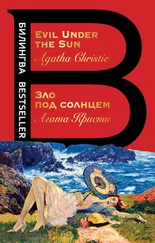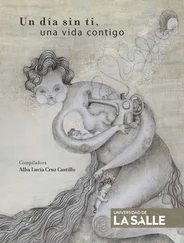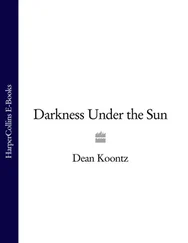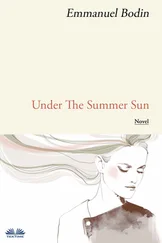“Yes. We haven’t pushed her. I’d hoped she would come around to it by herself. Lately, I wondered whether she ever would.”
Breda nodded sadly. “I know. I’ve felt the same. Even though she’s said nothing to me, I think she still hasn’t come to grips with both how unhappy she became at the thought of marrying Folant and how she harbors guilt about feeling relief at his accidental death.”
Culich sighed. “Folant wasn’t a bad man. Maybe they would have worked it out.”
“Maybe,” said a dubious Breda. “Oh, I agree he wasn’t bad or evil, but I’m afraid Maera holds fantasies about marriage. Likely at least somewhat our fault.”
“Our fault?” exclaimed a startled Culich. “How?”
“Dear, she had us as her model.”
Culich was silent for a moment, then nodded. “Yes, you might be right. I guess I never thought of it that way. We were so lucky. Inter-clan conflicts seemed to be a thing of the past, and the Narthani were still many years away. My father didn’t think a political marriage necessary when it came my time, and he had no objections to my marrying the daughter of one of his own boyermen. It’s easy to forget how marriages for our families are so often political affairs.”
“Maera knows the responsibilities,” said Breda. “We raised her so she knew a marriage might be arranged to benefit the clan, and she knows we would try to make a match with the potential for a degree of happiness.”
Culich shook his head. “I thought we succeeded with Folant. Marriage to the second son of Hulwyin Mittack would mean she might never be the wife of the Mittack hetman, but it would be of appropriate station. help keep our clan’s connections close to an allied clan, and, or course, one of their sons would be in line as a possible heir to Keelan. Plus, Folant seemed like a likable sort.”
“I’m afraid, dear, we never know what will go on between two people until they are put together. Folant may have been honorable and solid, but he didn’t see Maera as a person outside of himself and his belief in her expected roles. I know he didn’t listen to her. Maera always saw the two of us discussing issues, and she assumed it would be the same in her marriage. Unfortunately, Folant didn’t see it that way. During one of her visits to Mittack, he told her to stay out of Mittack clan business, because she was a woman and not even from Mittack.”
“That’s not only stupid, but it makes me angry,” said Culich. “Any husband of Maera’s would be lucky to have her. But that was then, and this is now. She’s twenty-three. She engaged late as it was, at twenty-one. I would never try to force her to be with someone she doesn’t approve of, but she’s aware of her obligations. Nothing has changed. We all know a hetman’s family has duties to the clan that don’t always mesh with personal desires, but we do what we must.”
Culich reached out and held his wife’s hand, his grip tight. “And then there’s the Narthani. While we can’t tell the future, I fear for the coming years. Questions about the Keelan succession are uncertainties the clan can’t afford.”
He paused, then continued. “I see three paths forward. We give her more time, we accept the possibility she never marries, or we talk with her that it’s time.”
Breda nodded. “As much as I hate the thought of forcing her to marry, I wonder whether it wouldn’t be best for her. I fear her sinking into a shell and turning into a tired, bitter, solitary woman. The problem remains, who would she marry?”
Culich sighed. “Yes, and there we return. A marriage of similar status to Folant’s might not happen. There aren’t many similar candidates who are unmarried, unless it’s someone much younger. The facts are that her age, her previous engagement, and she herself all work against her. I’m sorry to admit it, but most men prefer a more pliable wife, and Maera was never one not to give an opinion. She’ll be smarter and more educated than any husband.”
“What about forgetting the political marriage between clan families? What about within Keelan?”
“Who would it be?” asked Culich. “Knowing Maera, I’m afraid she’s stubborn enough not to marry someone without advantage for the clan, even if she likes him, and I’d hate to frame it as simply producing candidates for the heir. At this point, I would be amenable to any marriage that made her happy, but let’s admit it, my dear, our family has such solid clan support that there’s no advantage to a marriage within the clan. That leaves outside of the clan, and we’re back to who ?”
Breda nodded. “Also, I worry about her leaving the clan. If her marriage was cheerless, and she didn’t have the familiar around her, it would break my heart to know she would live an unhappy life.”
Culich was silent, having no solution.
Breda cleared her throat. “What about getting her out of here to travel more? She has always been interested in helping me with activities with widows and orphans and has even occasionally wondered whether, if she weren’t a Keelan, she might have joined one of the orders. On her own, she’s dabbled in medicant texts and probably knows almost as much as medicants in training. She’s also something of a scholastic in her own right in Caedellium history, stories, and folklore. Could we arrange for her to visit some of the scholasticums in other clans? Maybe she would meet a kindred soul there who might be appropriate.”
Culich rubbed his nose as he considered his wife’s suggestion. “Perhaps. I confess I sometimes feel guilty about how much I’ve come to depend on her as an advisor. Even in Keelan, though, it can be a problem having a young woman giving advice heeded as much as that given by the graybeards. If I hadn’t tolerated . . . no, let’s be honest . . . encouraged her scholastic interest, she would have found a more acceptable role.”
Breda shook her head and laid a hand on his forearm. “No, Culich, she is who she is. We talk about duty to the clan, and the benefit of her helping you is important. We shouldn’t judge ourselves too harshly if her helping is both good for the clan and makes her feel useful.”
Culich grunted and abruptly pushed his plate away. “So we accept, but where does that leave us with Maera?”
Breda sighed. “Maybe we continue to do what we are already doing, nothing, for now. Your first choice. We can also look for ways to let her travel away from Caernford. Then, wait longer and see whether Maera, God, or circumstances somehow solves the problem.”
Maera and Anarynd
The object of the discussion at the hetman’s morning meal at that moment finished a spiced bread roll and washed it down with kava in her own quarters of the Keelan manor. Maera noticed neither the roll nor the kava as they were consumed. Her attention focused on the disarray of papers spread out on the table. Sometimes she ate with one or more of her three younger sisters. On Godsday morning, her parents expected all of them to eat together before riding their surrey to St. Tomo’s Abbey for the morning service in Caernford. Many days, Maera ate alone. Not that she preferred it, but it was easier at times, particularly when she was absorbed in her readings, reports for her father, or correspondence. Today it was all three.
She finished editing a summary of her observations from her father’s last district boyermen meeting, and her ink-stained fingers pushed the completed report aside, to copy the final version later in the morning.
Next, she opened a book on the Keelan Clan history, written a hundred years ago, about what was known or what lore believed to be true about the early days of the clan’s founding. She was a third of the way through the book, and the dryness of events and names made it hard for her to focus for too long. Today she waded through ten pages, as resolved, then replaced the page marker and closed the book.
Читать дальше


